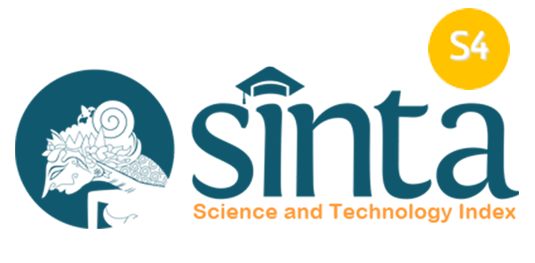University Students’ Awareness of, Access to, and use of Artificial Intelligence for Learning in Kwara State
Abstract
This study determined university students’ awareness of, access to, and use of artificial Intelligence for learning in Kwara State. The study adopted descriptive research of the survey type. This study adopted a descriptive research design of the survey method and employed a three-sectioned questionnaire to elicit information from the respondents. The sample size included a multistage sample of 200 undergraduates across three universities in Kwara state. Descriptive statistics and inferential statistics were employed to answer and test the formulated hypotheses at a 0.05 level of significance. The findings of the study were that majority of the university students are not aware of Artificial intelligence for learning and there was no significant difference between male and female university students’ awareness of the use of artificial intelligence for learning. This study concluded that students' ability to explore digital resources such as AI is dependent on their awareness and access to digital technologies. A lack of these will result in a lack of use and lack of skill to use them.
Keywords
Full Text:
PDFReferences
Bharati, K. F. (2017). A survey on artificial intelligence and its applications. International Journal of Innovative Research in Computer and Communication Engineering, 5(60), 11614-11619.
Bingimlas, K. A. (2009). Barriers to the successful integration of ICT in teaching and learning environments: A review of the literature. Eurasia Journal of Mathematics, Science and Technology Education, 5(3), 235-245.
Bostrom, N., and Yudkowsky, E. (2014). The ethics of artificial intelligence. The Cambridge Handbook of Artificial Intelligence, 1(2014), 316-334.
Caplar, N., Tacchella, S., and Birrer, S. (2017). Quantitative evaluation of gender bias in astronomical publications from citation counts. Nature Astronomy, 1(6), 1-5.
Chan, T. M., Dzara, K., Dimeo, S. P., Bhalerao, A., and Maggio, L. A. (2020). Social media in knowledge translation and education for physicians and trainees: a scoping review. Perspectives on Medical Education, 9(1), 20-30.
ElSayed, N., Thomas, B., Marriott, K., Piantadosi, J., and Smith, R. (2015). Situated analytics. In 2015 Big Data Visual Analytics (BDVA).
Fahimirad, M., and Kotamjani, S. S. (2018). A review on application of artificial intelligence in teaching and learning in educational contexts. International Journal of Learning and Development, 8(4), 106-118.
Ikedinachi, A. P., Misra, S., Assibong, P. A., Olu-Owolabi, E. F., Maskeliūnas, R., and Damasevicius, R. (2019). Artificial intelligence, smart classrooms and online education in the 21st century: Implications for human development. Journal of Cases on Information Technology (JCIT), 21(3), 66-79.
Kaliski, J., Kalinowski, J., Schumann, P., Scott, T., and Shin, D. (2008). Competition in the eLearning industry: A case study. Journal of Business Case Studies (JBCS), 4(2), 106-122.
Lazarus, S. S., Thurlow, M. L., Lail, K. E., and Christensen, L. (2009). A longitudinal analysis of state accommodations policies: Twelve years of change, 1993—2005. The Journal of Special Education, 43(2), 67-80.
Liebowitz, J. (2001). Knowledge management and its link to artificial intelligence. Expert Systems with applications, 20(1), 1-6.
Meyer, M. W., and Norman, D. (2020). Changing design education for the 21st century. She Ji: The Journal of Design, Economics, and Innovation, 6(1), 13-49.
Mikalef, P., and Gupta, M. (2021). Artificial intelligence capability: Conceptualization, measurement calibration, and empirical study on its impact on organizational creativity and firm performance. Information and Management, 58(3), 103434.
Miller, T. (2019). Explanation in artificial intelligence: Insights from the social sciences. Artificial intelligence, 267, 1-38.
NCS, N. C. (2014). The Role of Information Technology. In O. U. Professor Charles, A. Professor Adesola, and S. Dr. Adesina (Ed.), Building a Knowledge-Based Economy in Nigeria. 25, 52-65.
Osadebe, D. P. U. (2014). Assessment score of university lecturers. Assessment, 5(2), 7-26.
Osisanwo, F. Y., Ajaegbu, C., and Akande, O. (2014). Nigeria youths: Major contributor to ICT tools or major consumers of ICT? In O. U. Charles, A. Adesola, and S. Adesina (Ed.), Building a Knowledge-Based Economy in Nigeria: The Role of Information Technology, 25(2014), 47-54.
Popenici, S. A., and Kerr, S. (2017). Exploring the impact of artificial intelligence on teaching and learning in higher education. Research and Practice in Technology Enhanced Learning, 12(1), 1-13.
Southgate, E., Blackmore, K., Pieschl, S., Grimes, S., McGuire, J., and Smithers, K. (2019). Artificial intelligence and emerging technologies (virtual, augmented and mixed reality) in schools: A research report. Canberra: The Australian Government.
Zawacki-Richter, O., Marín, V. I., Bond, M., and Gouverneur, F. (2019). Systematic review of research on artificial intelligence applications in higher education–where are the educators?. International Journal of Educational Technology in Higher Education, 16(1), 1-27.
DOI: https://doi.org/10.17509/ijotis.v1i2.38014
Refbacks
- There are currently no refbacks.
Copyright (c) 1970 Universitas Pendidikan Indonesia

This work is licensed under a Creative Commons Attribution-ShareAlike 4.0 International License.
Indonesian Journal of Teaching in Science (IJoTIS) is published by Universitas Pendidikan Indonesia (UPI)
 Indonesian Journal of Teaching in Science
Indonesian Journal of Teaching in Science



